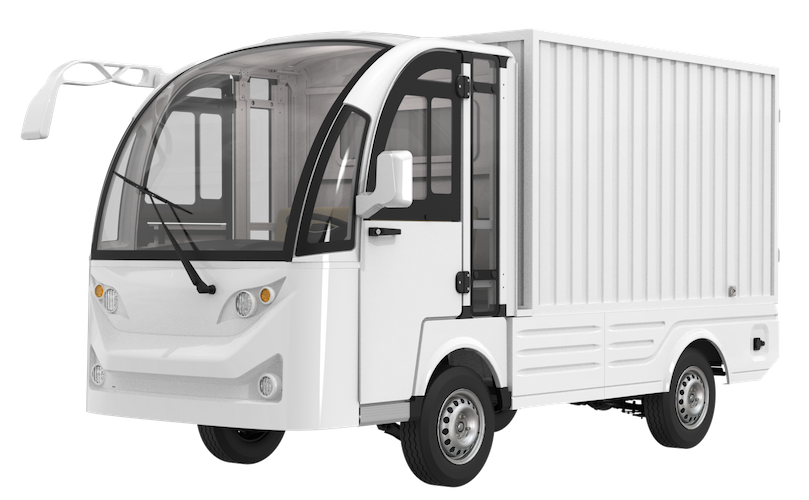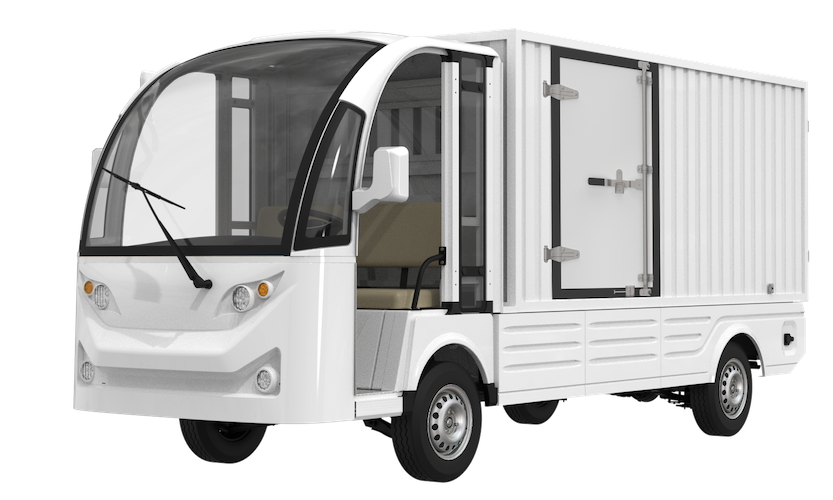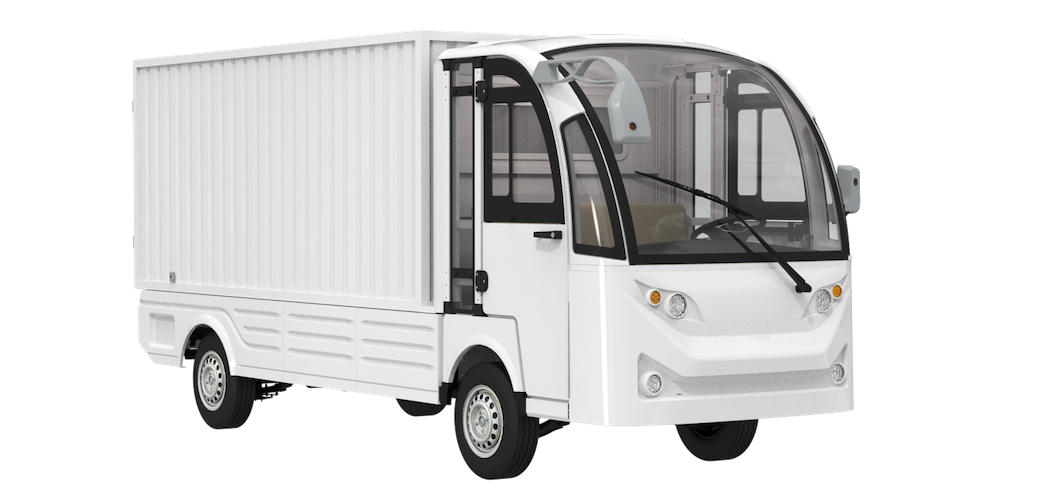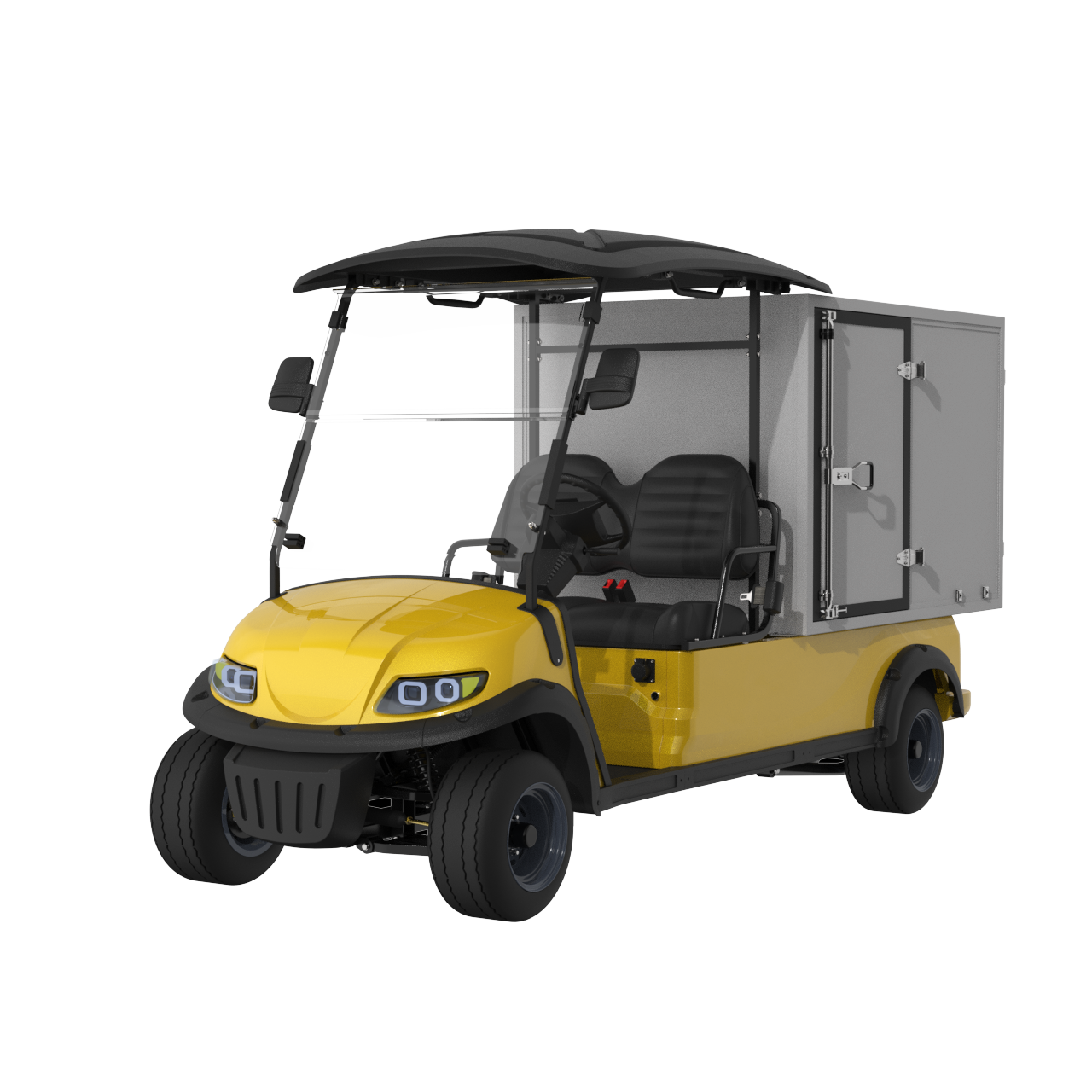Content Menu
● Market Overview
● Leading Electric Cargo Vehicle Manufacturers and Suppliers in Singapore
>> SRM
>> DFSK
>> LEVC
>> JAC Motors
>> EcoSwift
>> Higer
>> Maxus
>> Mitsubishi Fuso
● Key Trends Shaping the Market
● Advantages of Electric Cargo Vehicles for Businesses
● How to Choose the Right Electric Cargo Vehicle Supplier
● Future Outlook for Electric Cargo Vehicles in Singapore
● Conclusion
● FAQ
>> 1. What are the main benefits of switching to electric cargo vehicles?
>> 2. How do I choose the best electric cargo vehicle supplier in Singapore?
>> 3. Are there government incentives for adopting electric cargo vehicles in Singapore?
>> 4. What types of electric cargo vehicles are available in Singapore?
>> 5. What is the future outlook for electric cargo vehicles in Singapore?
Singapore stands at the forefront of sustainable urban transportation, with a rapidly growing market for electric cargo vehicles. As environmental concerns and government incentives drive the shift towards electrification, the role of Electric Cargo Vehicle Manufacturers and Suppliers in Singapore has never been more critical. This article explores the leading players, market trends, and the future outlook for electric cargo vehicles in Singapore, providing a comprehensive guide for businesses, fleet operators, and industry professionals.

Market Overview
Singapore's commitment to sustainability and innovation has positioned it as a regional leader in electric vehicle adoption. The government's aggressive push towards electrification, including substantial investments in EV infrastructure and incentives for EV adoption, has fueled the growth of Electric Cargo Vehicle Manufacturers and Suppliers. In recent years, electric vans and trucks have captured a significant share of the commercial vehicle market, with over half of all new vans registered being electric.
Singapore's EV market is segmented into passenger cars, commercial vehicles, and two-wheelers, with commercial electric cargo vehicles playing a pivotal role in urban logistics and last-mile delivery. The demand for clean, efficient, and cost-effective transport solutions is driving innovation and competition among manufacturers and suppliers.
The city-state's dense urban environment and strict emissions regulations make electric cargo vehicles an ideal solution for last-mile deliveries, warehouse operations, and intra-city logistics. Businesses are increasingly recognizing the operational and environmental benefits of transitioning to electric fleets, which has accelerated demand for reliable and high-performance electric cargo vehicles.
Leading Electric Cargo Vehicle Manufacturers and Suppliers in Singapore
SRM
SRM has emerged as a prominent name in Singapore's electric cargo vehicle landscape. The SRM T3EV model is a testament to the company's commitment to innovation and quality. Designed in Italy and assembled in Chongqing, the T3EV combines European design excellence with robust manufacturing. It offers a spacious loading area, making it suitable for a variety of commercial applications ranging from retail deliveries to industrial transport. Its long battery range and rapid charging capabilities ensure minimal downtime, which is crucial for businesses operating on tight schedules.
SRM's vehicles are well-regarded for their durability and adaptability in Singapore's tropical climate, offering reliable performance even under demanding conditions. The company also provides comprehensive after-sales support, including maintenance services and spare parts availability, ensuring fleet operators can maintain optimal vehicle uptime.
DFSK
DFSK is known for its versatile range of electric commercial vehicles, including cargo vans and refrigerated trucks. Their vehicles are designed to meet the diverse needs of Singapore's logistics and delivery sectors. DFSK's electric models feature high-efficiency battery systems that provide extended driving ranges, allowing businesses to cover longer routes without frequent recharging.
The refrigerated electric trucks from DFSK are especially popular among food and pharmaceutical distributors who require temperature-controlled transport solutions. These vehicles help reduce carbon emissions while maintaining the integrity of perishable goods, supporting Singapore's growing cold chain logistics industry.
LEVC
The London EV Company (LEVC) has brought its cutting-edge eCity technology to Singapore with the VN5 electric van. LEVC's VN5 combines an extended electric driving range with a petrol range extender, offering flexibility and peace of mind for operators concerned about range limitations. This plug-in hybrid design is particularly useful in Singapore's urban environment, where short trips dominate but occasional longer journeys may be necessary.
The VN5 features a spacious cargo area, advanced safety systems, and a comfortable cabin, making it an attractive option for businesses that want to combine sustainability with driver comfort and operational efficiency.
JAC Motors
JAC Motors is another key player supplying electric light trucks in Singapore. Their vehicles are engineered to meet the demands of urban and suburban logistics, offering a balance of performance, reliability, and affordability. JAC's electric trucks are equipped with efficient battery packs and electric drivetrains that reduce operational costs while delivering smooth and quiet rides.
JAC Motors' commitment to innovation is evident in their continuous development of electric vehicle technology, including improvements in battery density and vehicle control systems, which enhance both range and safety.
EcoSwift
EcoSwift stands out as a major force in Singapore's electric cargo vehicle market, particularly due to its operation of the largest electric truck and bus charging hub in Southeast Asia. This infrastructure advantage allows EcoSwift to offer integrated solutions combining electric vehicle supply and charging services, making them a one-stop partner for businesses transitioning to electric fleets.
EcoSwift's expertise extends beyond vehicle supply to include heavy haulage and logistics services, leveraging electric vehicles to reduce emissions in large-scale freight operations. Their leadership in sustainable logistics has set new standards in Singapore's transportation sector.
Higer
Higer specializes in right-hand drive electric light commercial vehicles, including cargo vans and mini buses tailored for Singapore's market. Their vehicles are designed with energy efficiency in mind, featuring lightweight materials and aerodynamic designs to maximize range.
Higer's electric cargo vans are popular among small and medium-sized enterprises (SMEs) due to their affordability and low maintenance requirements. The company also offers customization options, allowing businesses to adapt vehicles for specific cargo types or operational needs.
Maxus
Maxus offers a comprehensive range of electric vans and pick-up trucks designed for commercial applications. The eDeliver 5 and T90EV models are particularly favored for their reliability, competitive range, and adaptability to different business sectors such as retail, logistics, and construction.
Maxus emphasizes smart technology integration, equipping their vehicles with telematics systems that enable fleet managers to monitor vehicle performance, optimize routes, and manage maintenance schedules efficiently.
Mitsubishi Fuso
Mitsubishi Fuso's all-electric eCanter truck is tailored for urban deliveries, providing zero emissions, quiet operation, and flexible battery configurations. The eCanter is designed to meet the rigorous demands of city logistics, offering a payload capacity comparable to conventional diesel trucks but with significantly lower operating costs.
Mitsubishi Fuso supports its electric vehicles with a global network of service centers and a strong commitment to customer training, ensuring that fleet operators in Singapore can maximize the benefits of electric cargo vehicles.

Key Trends Shaping the Market
Several trends are shaping the growth and evolution of the Electric Cargo Vehicle Manufacturers and Suppliers industry in Singapore:
- Government Incentives and Policies: Singapore's government has introduced various incentives such as rebates, tax exemptions, and grants to encourage the adoption of electric vehicles. These policies reduce the upfront cost barriers for businesses and accelerate fleet electrification.
- Expansion of Charging Infrastructure: The rapid development of public and private EV charging stations, including fast chargers and depot charging solutions, supports the operational needs of electric cargo vehicles. Suppliers often collaborate with infrastructure providers to offer integrated solutions.
- Technological Advancements: Battery technology continues to improve, with higher energy densities, faster charging times, and longer lifespans. Innovations in electric drivetrains and vehicle design further enhance efficiency and performance.
- Sustainability and Corporate Responsibility: More companies are adopting electric cargo vehicles as part of their sustainability strategies, responding to consumer demand for environmentally responsible business practices and preparing for future regulatory requirements.
- Digitalization and Fleet Management: The integration of telematics, GPS tracking, and data analytics allows fleet operators to optimize routes, monitor vehicle health, and reduce operational costs, making electric cargo vehicles more attractive.
- Customization and Versatility: Manufacturers and suppliers are increasingly offering tailored vehicle configurations to meet specific industry needs, such as refrigerated transport, parcel delivery, and construction logistics.
Advantages of Electric Cargo Vehicles for Businesses
Adopting electric cargo vehicles offers numerous benefits for businesses operating in Singapore's urban environment:
- Zero Tailpipe Emissions: Electric cargo vehicles produce no direct emissions, helping companies reduce their environmental impact and comply with Singapore's stringent emission standards.
- Lower Operating Costs: Electricity is generally cheaper than diesel or petrol, and electric vehicles have fewer moving parts, resulting in reduced maintenance costs and longer service intervals.
- Quieter Operation: Electric vehicles operate quietly, reducing noise pollution in urban areas and improving working conditions for drivers and nearby residents.
- Enhanced Brand Image: Using electric cargo vehicles signals a company's commitment to sustainability, which can improve customer loyalty and attract environmentally conscious clients.
- Government Support: Access to rebates, tax incentives, and priority access to certain urban zones can provide financial and operational advantages.
- Improved Driver Experience: Electric vehicles offer smooth acceleration, less vibration, and reduced driver fatigue, contributing to safer and more comfortable operations.
How to Choose the Right Electric Cargo Vehicle Supplier
Selecting the right supplier is crucial to ensure that your investment in electric cargo vehicles delivers maximum value. Here are key considerations:
- Vehicle Specifications: Match the vehicle's range, payload capacity, and size to your operational needs. Consider factors like route length, cargo type, and loading requirements.
- Charging Solutions: Evaluate the supplier's ability to provide or support charging infrastructure, including compatibility with existing or planned charging stations.
- After-Sales Service: Reliable maintenance, warranty coverage, and availability of spare parts are essential to minimize downtime and extend vehicle lifespan.
- Customization and Flexibility: Some suppliers offer bespoke vehicle modifications or additional features tailored to specific industries, which can enhance operational efficiency.
- Total Cost of Ownership: Consider not only the purchase price but also long-term savings from fuel, maintenance, incentives, and potential resale value.
- Reputation and Experience: Choose suppliers with proven track records, positive customer feedback, and strong local presence to ensure dependable support.
Future Outlook for Electric Cargo Vehicles in Singapore
The future of electric cargo vehicles in Singapore is promising, driven by a combination of regulatory support, technological innovation, and market demand. The government's Green Plan and sustainability targets are expected to further accelerate the adoption of electric commercial vehicles.
Advancements in battery technology and charging infrastructure will continue to improve vehicle performance and convenience. Emerging trends such as vehicle-to-grid (V2G) technology, autonomous driving, and smart logistics integration are poised to transform urban freight transport.
As Singapore evolves into a smart city, electric cargo vehicles will play an increasingly important role in reducing urban pollution, enhancing efficiency, and supporting the growth of e-commerce and last-mile delivery services. Businesses that invest early in electric cargo vehicles and partner with leading manufacturers and suppliers will be well-positioned to thrive in this rapidly changing landscape.
Conclusion
Singapore's electric cargo vehicle market is dynamic and rapidly evolving, driven by a combination of government policy, technological progress, and business demand for sustainable solutions. The leading Electric Cargo Vehicle Manufacturers and Suppliers are not only providing cutting-edge vehicles but also shaping the future of urban logistics. For businesses seeking to stay ahead in a competitive and environmentally conscious market, investing in electric cargo vehicles is a strategic move that delivers both operational and reputational benefits. By carefully selecting suppliers that offer reliable vehicles, comprehensive support, and tailored solutions, companies can optimize their fleet operations and contribute meaningfully to Singapore's sustainability goals.

FAQ
1. What are the main benefits of switching to electric cargo vehicles?
Switching to electric cargo vehicles offers zero emissions, lower operating costs, reduced maintenance, and alignment with sustainability goals. Businesses also benefit from government incentives and an enhanced brand image.
2. How do I choose the best electric cargo vehicle supplier in Singapore?
Consider factors such as vehicle range, cargo capacity, charging infrastructure, after-sales support, customization options, and total cost of ownership when selecting a supplier.
3. Are there government incentives for adopting electric cargo vehicles in Singapore?
Yes, the Singapore government offers rebates, tax breaks, and grants to encourage the adoption of electric cargo vehicles, making them more affordable for businesses.
4. What types of electric cargo vehicles are available in Singapore?
Singapore's market includes electric lorries, vans, pick-up trucks, and specialized vehicles such as refrigerated trucks, catering to a wide range of commercial needs.
5. What is the future outlook for electric cargo vehicles in Singapore?
The outlook is highly positive, with strong government support, rapid technological advancements, and increasing business adoption driving robust market growth in the coming years.




















































